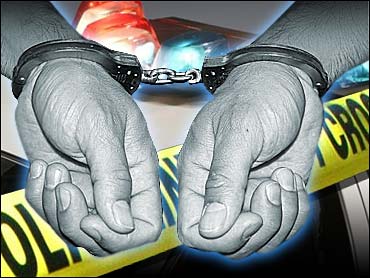Bolivian provincial governor arrested by military over violence
 La Paz - Leopoldo Fernandez, the governor of the northern Bolivian province of Pando, was arrested Tuesday by the military, as they took control of provincial capital Cobija in response to an outbreak of violence in the region.
La Paz - Leopoldo Fernandez, the governor of the northern Bolivian province of Pando, was arrested Tuesday by the military, as they took control of provincial capital Cobija in response to an outbreak of violence in the region.
Bolivian television reported Fernandez was made to board a military aeroplane that was set to take him to La Paz just 15 minutes after his arrest.
Fernandez, a prominent figure in the opposition to left-wing populist Bolivian President Evo Morales, has been accused by Morales of having caused a "massacre" Thursday in the village of Porvenir, 1,200 kilometres north of La Paz.
A convoy of peasants and students from a rural school were ambushed by hired killers from Brazil, Peru and Bolivia, the Bolivian Interior Ministry has said. At least 15 people were killed in the clashes, more than 30 were injured and some 100 remained missing, the authorities said.
The military occupation of Cobija already led to 12 arrests on Monday, all related to politically-motivated violence. On Friday, Morales had declared a state of siege in Pando in an effort to put a stop to the violence.
The Bolivian opposition has regrouped around autonomy movements in five of the country's nine provinces.
The crisis centres on Morales' plans to hold a referendum in December on a new constitution, in the centrepiece of his programme to distribute more of Bolivia's wealth to the impoverished, indigenous majority.
At an emergency summit late Monday in Santiago, nine South American presidents clearly expressed their support for the embattled Morales. They warned Bolivia's opposition to refrain from staging a coup and splitting the country, while they called for dialogue between the parties.
"We condemn and reject any attempt at a civilian coup or rupture of institutional order," Argentine President Cristina Fernandez said.
The organization demanded an immediate halt to attacks against the central authorities in the five opposition-controlled provinces by groups accused of "destabilizing democracy."
The opposition, concentrated in resource-rich southern and eastern Bolivia, is demanding the return of taxes levied on oil and natural gas revenues, which are currently used to provide pensions for all Bolivians over age 60.
The government's opponents accused Morales, who was elected in 2005 as the country's first indigenous president, of carrying out discrimination in favour of indigenous people.
In August, Morales survived a recall referendum with two-thirds of the vote.
Bolivia's population of 10 million has a 60-per-cent poverty rate, affecting mostly indigenous people. (dpa)